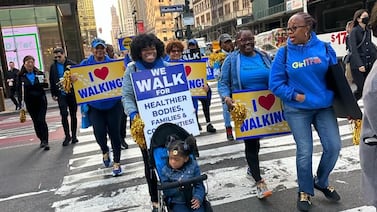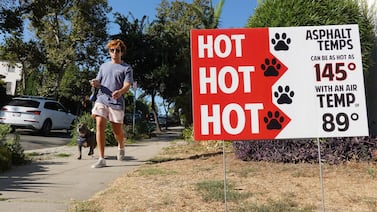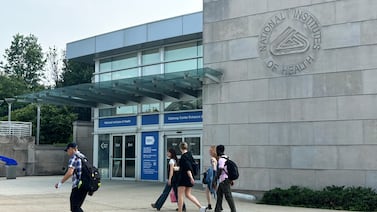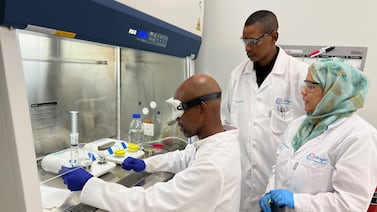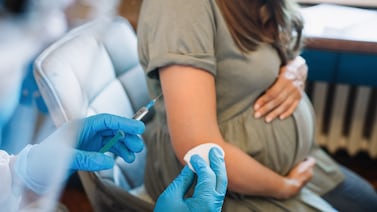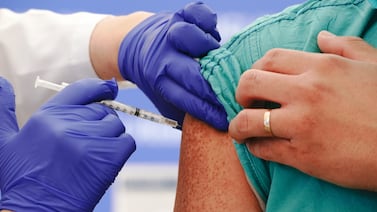National
Research shows that women who spend time in nature have healthier pregnancies. It's especially vital for Black women, who have a higher maternal mortality rate.
The Trump administration has declared that it will aggressively combat chronic disease in America. But its funding cuts tell a different story.
AI has improved performance in industries where data are abundant and decisions need to be fast and accurate, such as finance and logistics. The same tools could help the public health system improve accuracy and act faster.
Take our 5-minute survey to share your insights on public health needs in your community.
Health policy researchers expect the number of uninsured to grow as the second Trump administration and a GOP-controlled Congress try to enact policies that explicitly roll back health coverage for the first time since the advent of the modern U.S. health system.
The new members of the Advisory Committee on Immunization Practices began their tenure by shifting posture from support for vaccine advancement to doubt about the safety and efficacy of well-established inoculations.
Some leading vaccine scientists are calling for more resources to research vaccine safety and support people with claims of injury — and asking Kennedy to step up.
While Congress fails to stave off cuts to HIV care, community leaders in Mississippi and beyond race to limit the damage.
The evidence that vaccines are beneficial remains overwhelming. Vaccines to prevent RSV in people 60 and older are performing admirably. And a Stanford study found vaccination against shingles reduced the risk of dementia.
Even President Trump’s most ardent supporters like the legislation a lot less when they learn how it would cut federal spending on health programs, a new KFF poll shows.
Researchers laid off in April were putting the finishing touches on in-depth HIV surveys that guide treatment and prevention. Some staff have been reinstated, but data remains in limbo.
As part of the Trump administration’s widespread health spending reductions, any remaining grant funds to rural health clinics were rescinded.
In the United States, extreme heat is the primary cause of weather-related deaths, posing a significant threat to public health.
Hundreds of workers at the National Institutes of Health wrote that the Trump administration's actions are causing 'a dramatic reduction in life-saving research.'
As new diseases emerge more rapidly, and climate change increases other threats to health, officials may be able to use AI to practice public health with greater speed, precision, and effectiveness.
Countries that produced their own vaccines in the Covid-19 pandemic had first dibs on the shots. While the U.S., home to Moderna and Pfizer, rolled out second doses of mRNA vaccines in 2021, hundreds of thousands of people in countries that didn’t manufacture vaccines died waiting.
The cancellation of the funds comes weeks ahead of the FDA’s June 19 deadline for deciding on approval of lenacapavir, a twice-yearly injectable drug to prevent HIV.
Pregnant women who contracted Covid-19 were more likely to become severely ill and to be hospitalized than non-pregnant women of the same age and demographics.
The FDA will encourage new clinical trials on the widely used vaccines before approving them for children and healthy adults. The requirements could cost drugmakers tens of millions of dollars and are likely to leave boosters largely out of reach for hundreds of millions of Americans this fall.
A GOP tax-and-spending bill the House approved Thursday would slash federal Medicaid reimbursement for states that offer health coverage to immigrants without legal status.

